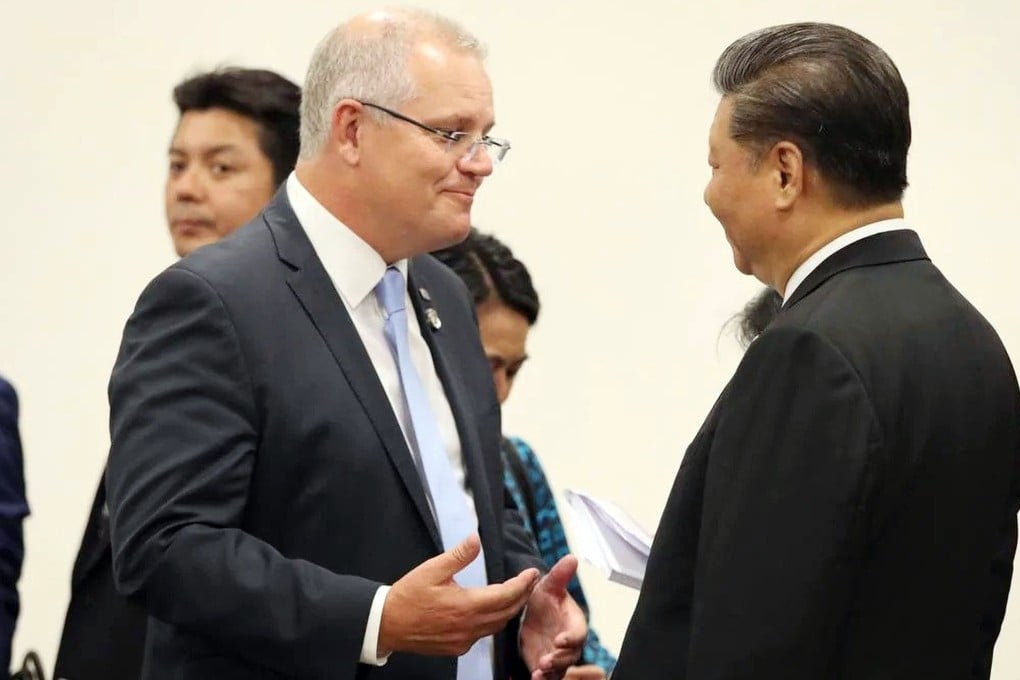Advertisement
Explainer | What happened over the first year of the China-Australia trade dispute?
- China has targeted Australian barley, beef, wine, coal and cotton since Australia led calls for international inquiry into origins of the coronavirus in April 2020
- Two-way trade between China and Australia is worth around A$240 billion (US$171 billion), while China buys around 39 per cent of Australia’s merchandise exports
Reading Time:10 minutes
Why you can trust SCMP
44

Click here for a new version of our China-Australia relations explainer, marking the one-year anniversary of the trade dispute.
Relations between China and Australia have become fraught over the past year after Canberra pushed for an international probe into the origin of the coronavirus without diplomatic consultations beforehand, and Beijing eventually responded with a number of trade blocks on wine, barley, cotton, copper, coal, sugar and lobsters. We look at the issues in this series.
What is happening between China and Australia?
China is Australia’s most important and biggest trading partner, but after Australia Prime Minister Scott Morrison led calls for a coronavirus inquiry in April 2020. Beijing has made trade moves against Australian barley, beef, wine, cotton and coal.
Advertisement
While many have questioned the political motives for the moves, so far, each of the actions arose out of a legitimate trade breach. China’s imposition of duties on Australia barley, for example, was a result of an 18-month anti-dumping investigation.
Advertisement
The dispute also spread to other areas, with both countries warning their citizens about travelling to the other country. China warned about studying in and visiting Australia due to alleged rising racism and discrimination against people with Chinese and Asian ethnicities, while Australia warned its citizens about arbitrary detention in China.
China also visited two Australian citizens in Beijing and Shanghai in September for questioning, while Australia raided the homes of Chinese journalists in Sydney during an alleged foreign interference investigation into a local politician and cancelled their visas.
Advertisement
Select Voice
Select Speed
1.00x